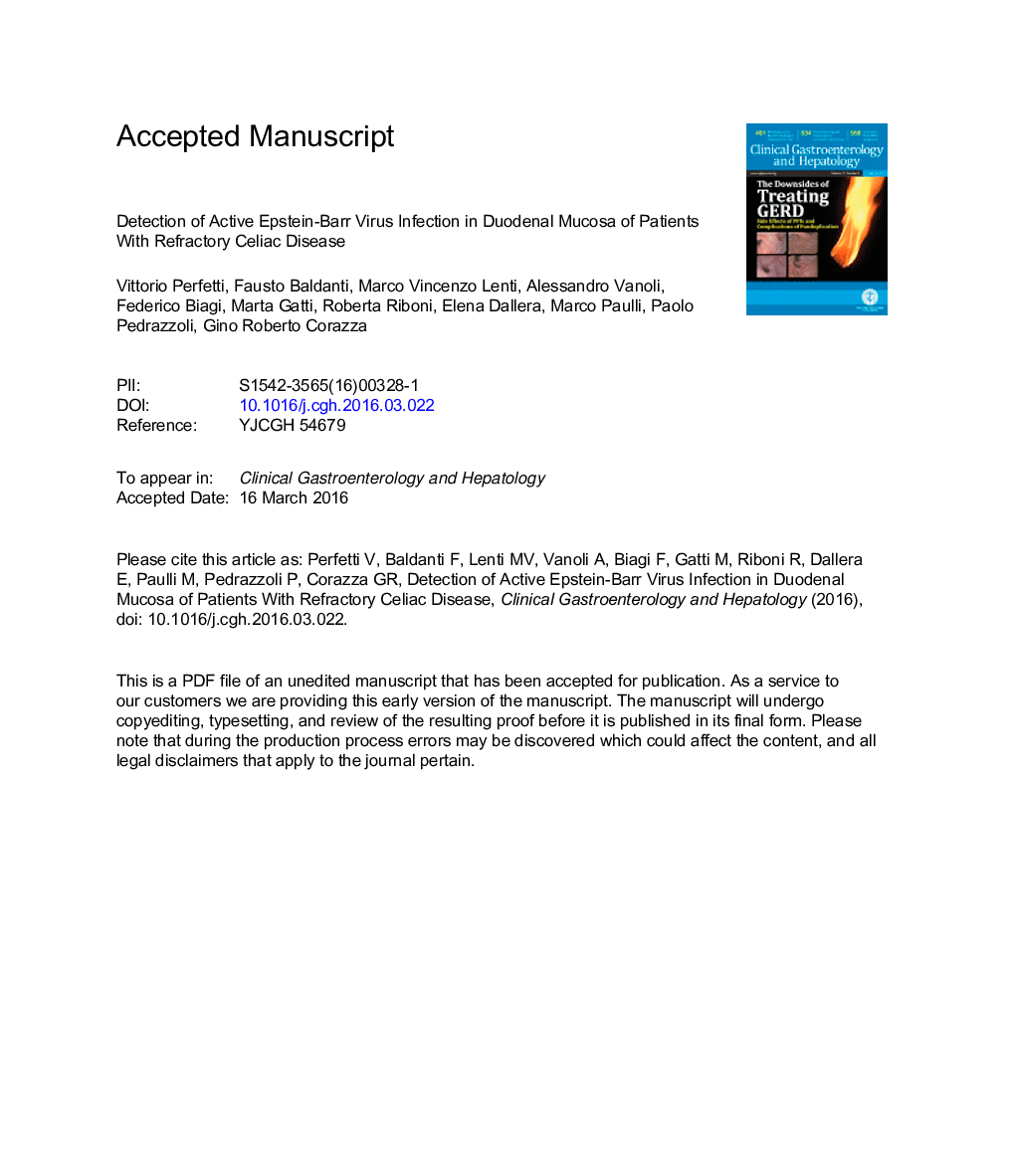| Article ID | Journal | Published Year | Pages | File Type |
|---|---|---|---|---|
| 3281410 | Clinical Gastroenterology and Hepatology | 2016 | 15 Pages |
Abstract
Refractory celiac disease is characterized by mucosal damage in patients with celiac disease despite a gluten-free diet. Little is known about the mechanisms that cause persistent intestinal inflammation in these patients. We performed a case-control study of 17 consecutive patients diagnosed with refractory celiac disease from 2001 through 2014 (median age, 51 y; 10 women) and 24 patients with uncomplicated celiac disease (controls) to determine whether refractory disease is associated with infection by lymphotropic oncogenic viruses. We performed real-time PCR analyses of duodenal biopsy samples from all patients to detect Epstein-Barr virus (EBV), human herpesvirus-8, and human T-cell lymphotropic virus-I, -II, or -III. We used in situ hybridization and immunohistochemical analyses to identify infected cells and viral proteins. We did not detect human herpesvirus-8 or human T-cell lymphotropic viruses in any of the biopsy specimens. However, 12 of 17 (70.5%) biopsy specimens from patients with refractory celiac disease were positive for EBV, compared with 4 of 24 (16.6%) biopsy specimens from controls (P < .001). EBV was detected in inflammatory cells and enterocytes. An analysis of latency- and replication-associated proteins confirmed active infection. Further studies are needed to determine whether EBV infection contributes to the pathogenesis of refractory celiac disease and enteropathy-associated T-cell lymphoma.
Keywords
Related Topics
Health Sciences
Medicine and Dentistry
Gastroenterology
Authors
Vittorio Perfetti, Fausto Baldanti, Marco Vincenzo Lenti, Alessandro Vanoli, Federico Biagi, Marta Gatti, Roberta Riboni, Elena Dallera, Marco Paulli, Paolo Pedrazzoli, Gino Roberto Corazza,
